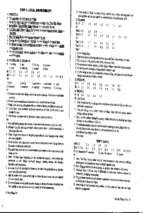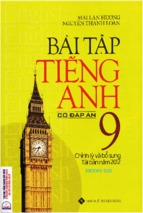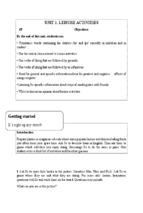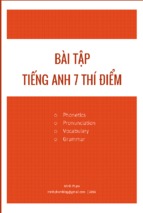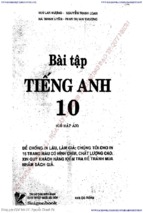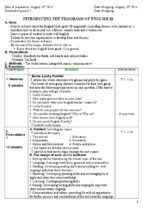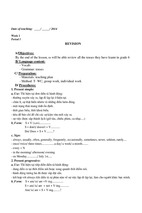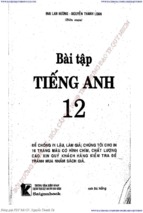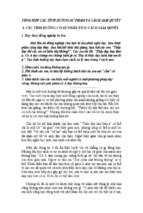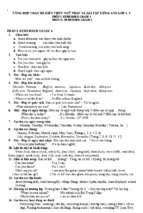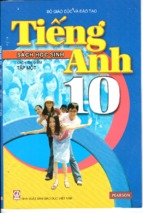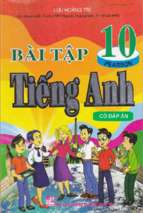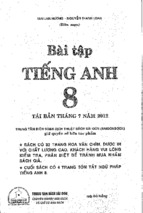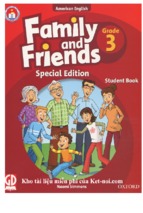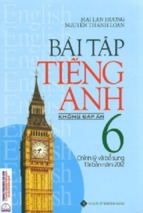SỞ GIÁO DỤC VÀ ĐÀO TẠO ĐỒNG NAI
Đơn vị: Trường THPT chuyên Lương Thế Vinh
Mã số:.......................
SÁNG KIẾN KINH NGHIỆM
TOPIC-BASED VOCABULARY
TEACHING TO STUDENTS
MAJORING IN ENGLISH
Người thực hiện: HỒ THỊ THẢO TRINH
Lĩnh vực nghiên cứu:
Quản lý giáo dục
.................................................................
Phương pháp dạy học bộ môn tiếng Anh
Phương pháp giáo dục
Lĩnh vực khác
Có đính kèm:
Mô hình Phần mềm
...............
....................................................
.......................................................................
Phim ảnh
Giáo án điện tử
Năm học 2011 - 2012
2
SƠ LƯỢC LÝ LỊCH KHOA HỌC
I. THÔNG TIN VỀ CÁ NHÂN
1.Họ và tên: HỒ THỊ THẢO TRINH
2.Ngày tháng năm sinh: 28 tháng 11 năm 1973
3.Chức vụ:
Đảng:
Chính quyền:
4. Đơn vị công tác: Trường THPT chuyên Lương Thế Vinh
II. TRÌNH ĐỘ ĐÀO TẠO
Trình độ: Thạc sỹ
Tốt nghiệp: Victoria University
III.
KINH NGHIỆM KHOA HỌC
Đã trực tiếp tham gia giảng dạy: 16 năm
Sáng kiến kinh nghiệm trong 5 năm gần đây:
o Using role-play to encourage students’ active
participation during speaking activities at LƯƠNG
THẾ VINH HIGH SCHOOL
o Teaching grammar in light of communicative
language teaching
o Applying communicative activities in english reading
class
3
SỞ GD&ĐT ĐỒNG NAI
CỘNG HOÀ XÃ HỘI CHỦ NGHĨA VIỆT NAM
Trường THPT chuyên Lương Thế Vinh
Độc lập – Tự do – Hạnh phúc
_____________
_______________
Biên Hoà, ngày ..03.. tháng 05 năm 2012
PHIẾU NHẬN XÉT ĐÁNH GIÁ SÁNG KIẾN KINH NGHIỆM
Năm học: 2011 – 2012
Tên chuyên đề: TOPIC-BASED VOCABULARY TEACHING TO
STUDENTS MAJORING IN ENGLISH
Họ và tên tác giả: HỒ THỊ THẢO TRINH
Tổ: Ngoại ngữ
Lĩnh vực:
Quản lý giáo dục....................
Phương pháp dạy học bộ môn tiếng Anh..............
Phương pháp giáo dục ...........
Lĩnh vực khác.......................................................
1.
2.
Tính mới
- Có giải pháp hoàn toàn mới ................................................................
- Có giải pháp cải tiến, đổi mới từ phương pháp đã có..........................
Hiệu quả
Hoàn toàn mới và đã triển khai áp dụng trong toàn ngành có hiệu quả cao
- Có tính cải tiến hoặc đổi mới từ những giải pháp đã có và đã triển khai áp dụng
trong toàn ngành có hiệu quả cao
- Hoàn toàn mới và đã triển khai áp dụng tại đơn vị có hiệu quả cao
- Có tính cải tiến hoặc đổi mới từ những giải pháp đã có và đã triển khai áp dụng
tại đơn vị có hiệu quả
-
3.
Khả năng áp dụng
- Căn cứ được các luận cứ khoa học cho việc hoạch định đường lối chính sách:
Tốt .........
Khá ..........
Đạt ...........
- Đưa ra các giải pháp khuyến nghị có khả năng ứng dụng thực tiễn dễ thực hiện và
dễ đi vào cuộc sống:
Tốt .........
Khá ..........
Đạt ...........
- Đã được áp dụng trong thực tế đạt hiệu quả hoặc có khả năng áp dụng đạt hiệu
quả trong phạm vi rộng:
Tốt .........
Khá ..........
Đạt ...........
XÁC NHẬN CỦA TỔ CHUYÊN MÔN
THỦ TRƯỞNG ĐƠN VỊ
4
.I
Introduction
Nowadays, it is widely accepted that vocabulary plays an important part in
language teaching and should be at the centre of language teaching. More and more
researchers have realized the importance of vocabulary acquisition in second language
teaching. According to McCarthy (1990), without words a learner cannot communicate or
read. David Wilkins (cited in Thornbury, 2002), when mentioning the shift of focus from
grammar as the central anchor of language teaching to the lexicon, emphasizes the
importance of vocabulary acquisition as follows, “ without grammar very little can be
conveyed; without vocabulary nothing can be conveyed.”
Traditionally, the teaching of vocabulary was mostly incidental, limited to
presenting new items as they appeared in reading or sometimes listening texts. This
indirect teaching of vocabulary assumes that vocabulary expansion will happen through
the practice of other language skills, which has been proved not enough to ensure
vocabulary expansion.
Today, it is widely accepted that vocabulary teaching should be part of the
syllabus, and taught in a well-planned and regular basis. Some authors, led by Lewis
(1993) argue that vocabulary should be at the centre of language teaching, because
“language consists of grammaticalised lexis, not lexicalized grammar.” Read (2004)
emphasizes that a more direct and organized study of vocabulary and vocabulary
instruction will be helpful for second language learners although they certainly acquire
word knowledge incidentally while engaged in various language learning activities. The
more their word knowledge increases, the more their other language skills (reading,
5
writing, listening and speaking) will develop. With this thought in mind, many
researchers conducted their research dealing with vocabulary. They inspired me to
continue with this topic for my vocabulary teaching to students majoring in English.
.II
Literature review
There are two main approaches to teaching vocabulary: incidental learning often
known as implicit learning and intentional learning often referred to as explicit learning
(Rieder, 2002). Incidental vocabulary acquisition can be defined as a “by-product” of any
language learning, whereas intentional vocabulary learning is defined as “any activity
geared at committing lexical information to memory” (Hulstijn,2001 p.271). Incidental
vocabulary learning could be attained by extensive reading, whereas intentional
vocabulary learning could be attained by implementing a lexical syllabus based on word
lists. In a case study, Pigada and Schmitt (2006) indicated that vocabulary acquisition is
possible from extensive reading. The authors asserted that extensive reading leads to
enhancement of knowledge about the spelling, meaning and grammatical behaviour of
words in the text. They concluded that extensive reading leads to substantial vocabulary
learning, but it is not consistent across all word knowledge types (i.e., form, meaning,
and use). All three word knowledge facets were enhanced in only 6% of the cases
studied. This seems to justify the suggestion of many researchers that incidental learning
should be followed up with intentional learning (Hulstijn, Hollander and Greidanus,
1996) and explicit vocabulary teaching (Nation, 2005).
A study of EFL Indonesian students by Nurweni and Read (1999) verified that
given that students had little access to resources for acquiring English outside the
classroom, direct teaching of high-frequency words was an efficient way to expand their
vocabulary knowledge and thus to achieve better coverage of the running words in
6
academic texts. The authors pointed out one of the reasons of the limited vocabulary
knowledge of the students was little attention to vocabulary teaching, thus they assumed
that more focused in-class vocabulary teaching would bring about positive outcomes.
Another argument in vocabulary teaching is whether or not vocabulary should be
taught in or out of context. Qian (1996) conducted research to test which approach to
vocabulary teaching is more effective in terms of retention of target words. His results, as
well as other research on the same subject, imply that learning words out of context
results in better retention than learning words in context. However, Qian concludes that
both approaches should be integrated in the classroom. Tozcu and Coady (2004) also
conducted research with two groups of students, the treatment group studied frequent
vocabulary explicitly through CALL (Computer Assisted Language Learning), whereas
the control group studied the same vocabulary implicitly by reading texts and doing
reading comprehension exercises. Both groups showed gains in vocabulary acquisition.
However, the treatment group showed significantly greater gains. There is no doubt that
both methodologies need to complement each other for best results.
A combination of both implicit and explicit approaches is introduced in Hunt and
Beglar’s (2005) framework for EFL vocabulary development. In this framework, implicit
instruction and learning strategy includes “meaning- focused reading” which is aimed at
increasing learners’ vocabulary size through extensive reading and development their
fluency. Explicit strategies
include “studying decontextualized
lexis”,
“using
dictionaries”, and “inferring vocabulary meaning from context.” The main purpose of
explicit instruction are learners’ acquisition of new vocabulary knowledge. In applying
both explicit and implicit pedagogical approaches in the framework, Hunt and Beglar
(2005) demonstrated their belief that such a combination is mutually beneficial and offers
the most effective means for promoting lexical acquisition in EFL contexts.
7
.III
Aims of the research
This research aims to find answers to the following questions:
1. Is there significant vocabulary development if topic-based vocabulary is
taught?
2. Is there improvement in the students’ attitude towards learning English if
they are taught topic-based vocabulary?
.IV
Rationale and justification of the research
Krashen (1989) believes that vocabulary is best attained through a large amount
of extensive reading. A learner has to be exposed to a tremendous amount of reading for
incidental learning to occur, and relying only on reading would mean that it would take
too long for learners to acquire the lexis needed to reach higher vocabulary thresholds
(Laufer, 2003). This could be done by implementing an extensive reading program to
encourage learners to read as much as possible. For high school students in Vietnam,
however, this seemingly couldn’t be done because they have to focus on many subjects.
Therefore, English vocabulary they acquire is mostly from the textbook.
I am teaching English in Luong The Vinh high school, Dong Nai province. This
is the seventh year I am performing the new curriculum for high school students. Each
unit in the new English textbook, which is task-based, consists of five parts in order:
Reading, Speaking, Listening, Writing and Language focus. Compared with the old
curriculum, the new has been welcomed by both teachers and students. However, it has
received many complaints from the students majoring in English. In the survey of
students’ attitude towards the new English textbook (class 10) at the end of the last
school year, more than two-thirds of 10th grade students majoring in English said that
8
teachers should focus more on teaching vocabulary to help them have more word
knowledge, be able to use vocabulary appropriately in writing and speaking, and
understand the messages more deeply from advanced reading and listening texts.
Especially, if they master more vocabulary, they will be more confident to participate in
many examinations for good students.
Through the survey, we teachers find it necessary to implement topic-based
vocabulary teaching with careful compilation to help them concentrate on learning
English more enthusiastically and confidently.
There is no doubt that vocabulary acquisition is one of the most important needs
of any ESL learners. Therefore, topic-based vocabulary teaching in classrooms should be
carried out to help students acquire vocabulary and have positive attitude towards four
language skills: reading, speaking, listening, and writing.
Previous studies have been done much valuable work in the field of vocabulary
teaching. The present study, which is being implemented in my class (11 English 2), aims
to examine the effect of topic-based vocabulary teaching on students’ vocabulary
acquisition and their attitude towards studying English.
.V
Methodology
.V.1 -
Participants
The subjects of this research are 20 students of class 11 English 2 in Luong The
Vinh high school.
.V.2 -
Research instruments
Two main research instruments are used. The first is a questionnaire whose aim is
to discover students’ attitudes towards studying English. This questionnaire is completed
9
on the first day of the school year. Another questionnaire is filled out on the last day of
the school year to test their attitude towards studying English after a period of learning
topic-based vocabulary. The second is a multiple-choice vocabulary test.
.V.3 -
Materials
20 lessons with up-to-date topics: Leisure activities, Travel and movement, News
events, Places, Media and advertising, The natural world, Work, Business and money,
People and relationships, Social problems, Entertainment, Government and society,
Health and the body, World issues, Thinking and feeling, Technology, Quality and
quantity, Education, The energy crisis, The Green revolution, Urbanisation are compiled
from some sources such as Advanced Language Practice ( Michael Vince), Vocabulary
for IELTS (Paulyne Cullen)…
.V.4 -
Procedure
a. 20 students of grade 11 English 2 are given a multiple-choice vocabulary pretest
before learning topic-based vocabulary. They do the test for 45 minutes. The
contents of the test are from the sources mentioned in V.3. The first questionnaire
is given out prior to the pretest and only after the subjects complete the
questionnaire are they able to begin the test.
b. The papers are graded and are never given back to the students. Any type of
feedback are not provided.
c. At the end of the school year, the same test are administered. After the test, the
students fill out another questionnaire to test their attitude towards studying
English.
10
.V.5 -
Results
For the pretest, there are 5 papers got from 8 to 8.5 marks, 7 papers got from 6.5
to 7.5, and 8 papers got from 5 to 6. Most of them showed their attitude that the teacher
should teach them more vocabulary which is based on interesting topics.
For the test at the end of the schoolyear, 4 papers got 10 marks, 15 papers got
from 8 to 9.5, and 1 paper got 7.5. All of the students felt more active in learning English
and confident in participating in English tests and examinations.
.V.6 -
Discussion
Research question 1: Is there significant vocabulary development if topic-based
vocabulary is taught?
Teaching English is a hard job, but teaching English to gifted students is a harder
one. Teachers endlessly study, try to find many ways to teach them effectively and create
inspiration among those students. Gifted students can generally communicate well,
having learnt all the basic structures of the language. However, they need to broaden their
vocabulary to express themselves more clearly and appropriately in a wide range of
situations. Designing topic-based vocabulary lessons clearly contributes to enriching
their vocabulary, which later helps them take part in other skills more actively. For my
gifted students, their ability to use words correctly is being more and more improved.
Research question 2: Is there improvement in the students’ attitude towards
learning English if they are taught topic-based vocabulary?
Without a careful compilation of vocabulary, students will have difficulty in
reading, speaking, writing and listening and then become tired of learning English. By
learning topic-based vocabulary, they find out many interesting things about meanings
and usage of words. Their attitude towards learning English is, therefore, more
11
enthusiastic. Concerning students’ participation and attitudes in the classes, it is proved
that students’ motivation rises when they get engaged in every activity during the classes.
That is to say, they become active participants in the whole process.The reason for
increased motivation is that they learn vocabulay based on interesting topics, helping
them pay more attention to the use of words in right contexts and remember vocabulary
more easily. What is more, the fact that they are given the opportunity to do more
practice tests about vocabulary that they have learnt is an effective way to keep them
more confident of learning English and participating in the exams for gifted students.
.VI
Conclusion
It is obvious that the students’ scores on the posttest are significantly improved.
The result suggests that topic-based vocabulary teaching leads to significant vocabulary
development that, according to the students, makes reading, speaking, listening, and
writing easier and more enjoyable. Topic-based vocabulary teaching also makes students
more confident in performing tasks given in each part. It is hoped that the more words
they know, the more interested they are in learning English.
12
REFERENCES
1. Decarrico, J. S. (2001). Reading for academic purposes: Guidelines for the ESL/EFL
teacher. In M. Celce-Murcia (Ed.), Teaching English as a second or foreign language
(3rd ed., pp. 285-299). Boston: Heinle & Heinle.
2. Hulstijn, J.H. (2001). Intentional and incidental second language vocabulary
learning: a reappraisal of elaboration, rehearsal and automaticity. In Robinson, Peter
(ed.). Cognition and second language instruction. Cambridge: Cambridge University
Press, 258-287
3. Hulstijn, J., Hollander, M., & Greidanus, T. (1996). Incidental vocabulary learning
by advanced foreign language students: The influence of marginal glosses, dictionary
use, and reoccurrence of unknown words. The Modern Language Journal, 80, 327339.
4. Hunt, A., & Beglar, D. (2005). A framework for developing EFL reading vocabulary.
Reading in a Foreign Language, 171 (1).
5. Krashen, S. (1989). We acquire vocabulary and spelling by reading: Additional
evidence for the input hypothesis. The Modern Language Journal, 73, 440-464.
6. Laufer, B. (2003). Vocabulary acquisition in a second language: Do learners really
acquire most vocabulary by reading? Canadian Modern Language Review 59(4),
565-585.
7. Lewis, M. (1993). The Lexical Approach. Hove, UK: Language Teaching
Publications
8. McCarthy, M. (1990). Vocabulary. Oxford: Oxford University Press
9. Nation, I.S.P. (2005). Teaching vocabulary. The Asian EFL Journal Quarterly, 7(3),
4754. Retrieved October 23, 2006, from http://www.asianefl
journal.com/September_2005_EBook_editions.pdf
10. Nurweni, A., & Read, J. (1999). The English vocabulary knowledge of Indonesian
university students. English for Specific Purposes, 18, 161175.
11. Pigada, M., & Schmitt, N. (2006). Vocabulary acquisition from extensive reading: A
case study. Reading in a Foreign Language, 18(1).
12. Qian, D.D. (1996). ESL vocabulary acquisition: Contextualization
decontextualization. The Canadian Modern Language Review, 53, 120-142.
and
13. Read, J. (2004). Research in reaching vocabulary. Annual Review of Applied
Linguistics, 24, 146-161.
14. Rieder, A. (2002). Implicit and explicit learning in incidental vocabulary acquisition.
VIEWS 12 (2), 24-39.
15. Thornbury, S. (2002). How to teach vocabulary. Essex: Longman
16. Tozcu, A. and Coady, J. (2004). Successful Learning of Frequency Vocabulary
through CALL and Benefits Reading Comprehension and Speed. Computer Assisted
Language Learning. 17(5), 473-495
13
APPENDIX
VOCABULARY 1 –
1
Leisure activities
Read the text and decide which answer (A, B, C or D) best fits each space.
It is now generally recognised that stress is a major (1) ...C ..... of heart disease,
and contributes to many other illnesses. Stress is increased by (2) ...................... such as
worry, overwork and lack of exercise or relaxation.
For it is just as important from a
psychological point of (3)...................... to relax as it is to (4)......................physical exercise.
Relaxing does not necessarily mean just lazing about and doing nothing. The benefits of
a weekend away or the diversion of sporting activities are considerable. If you are suffering
from high stress
(5)......................, or wish to (6) ...................... after a trying day, it is
generally advisable to have a change of (7)......................Although there are some
individuals who (8)......................on stress, for most of us, it can lead to exhaustion, mood
swings and even severe depression.
1)
2)
3)
4)
5)
6)
7)
8)
2
3
A reason
A factors
A fact
A make
A rates
A hold up
A scene
A bloom
B motive
B aspects
B departure
B have
B layers
B wind down
B location
B prosper
C
C
C
C
C
C
C
C
cause
elements
view
undergo
ratios
draw back
sight
thrive
D purpose
D items
D return
D take
D levels
D peter out
D place
D flourish
Choose two items from the box which are used in each activity (a-h).
a) Gymnastics
......................horse.................
......................bars......................
b) Scuba Diving
................................................
...................................................
c) Fishing
................................................
...................................................
d) Walking
................................................
...................................................
e) Photography
...........................................
..............................................
f) Do-It-Yourself
..................................................
.....................................................
g) Swimming
................................................
...................................................
h) Cycling
................................................
...................................................
Both options make sense. Underline the one which forms a common collocation.
Last week well over a thousand people (1) took place in/took part in our local roundthe-city 10-kilometre fun run. This kind of race doesn't normally (2) appeal to me/amuse
me, as, frankly, I'm not really (3) cut out for/right for long distance running. But I've got
two friends who are dead keen runners
and who keep going on about the (4)
14
beneficial/positive effects of running. So I decided to run, partly for that reason and partly
to (5) earn/raise money for charity. Friends and colleagues agreed to (6) sponsor/support
me, and pay for each mile I completed. Well, I hadn't done much training for the big
event, and after two kilometres I was (7) gasping/panting for breath, so I settled down to a
slow jog and resigned myself to plodding along with the (8) strugglers/stragglers at the
back of the race. At least I finished, and was very pleased with myself, as I didn't need to
stop. I timed myself with a stop-watch, and reckon I (9) crossed/arrived at the finishing
line in 43 minutes - not bad for a novice. The heat proved too much for a few people
who'd gone off too fast for their capabilities and ended up (10) suffering from/showing
exhaustion.
Apparently,
the course was very fast, and both of my friends ran a (11)
personal best/personal record. The winner (12) surpassed/broke the course record. I was
actually very impressed with the whole event; the organisation
was first-class,
with
medical volunteers (13) on duty/on standby throughout, and drinks (14) stops/stations every
few kilometres of the route. So now the charity of my choice is £150 the richer, and as
for me, I'm well and truly bitten by the running bug. I go running with my friends
regularly now, and I'm actually starting to (15) catch up with/get near to them!
4
Complete each sentence with a word formed from the word in capitals.
a) The new leisure centre doesn't quite come up to
EXPECT
my ...expectations..............
b) There was a bare ............................... of people at the youth club.
HAND
c) Helen's solo crossing of the Pacific was a ............................... feat.
REMARK
d) We ............................... go to the pub before lunch on Sunday.
VARY
e) All the runners, with the ............................... of Mark, were exhausted.
EXCEPT
f) Our club has just purchased new sports ......................
EQUIP
g) Our city has some open spaces but they are not very ......................
ACCESS
h) Is it possible to ............................... between a hobby and an interest?
DISTINCT
i) Nowadays ............................... numbers of people are taking up
INCREASE
jogging.
j) Leisure habits won't change much in the...................... future.
5
SEE
Read the text and decide which answer (A, B, C or D) best completes each
collocation or fixed phrase.
Very few popular (1) ...C..... sports today remain amateur in any sense of the word. In
the past, even in cases where payment to players or athletes was forbidden, many sports
tolerated what became known as 'shamateurism',
and even the sports governing
(2) ......................turned a blind eye to such (3)......................as the paying of 'expenses'. More
recently, sport has become, in effect, a (4)......................of the entertainment industry, and
the elite (5)......................in sports such as swimming, tennis, football and track athletics can
expect to become very rich. This worries some people, who complain that the old Olympic
15
ideal has been lost, but the fact is, sport has become more and more professional in the
wider sense, not only requiring total dedication from (6)......................champions, but also
expensive facilities, training and nutritional advice.
6
1) A audience
B watching
C spectator
D viewing
2) A associations
B confederations
C authorities
D bodies
3) A practices
B occurrences
C acts
D operations
4) A branch
B division
C wing
D limb
5) A doers
B players
C makers
D performers
6) A hopeful
B aspiring
C striving
D wishful
Complete each sentence with the most appropriate word from the box.
board
draw
lap
referee
runner-up
dive
fan
oar
round
whistle
a) While I was rowing across the lake I lost one .....oar…..
b) Neither team deserved to lose and the match ended in a......................
c) Ruth was well out in front by the end of the fifth .....................
d) After the rugby match David was attacked by an angry ......................
e) Brian impressed everyone with his ...................... into the pool.
f) Our gym teacher used to make us stop by blowing a .....................
g) During the chess game Carol knocked all the pieces off the .....................
h) Our team was knocked out of the competition in the second .....................
i) During the match one of the spectators offered the ...................... his glasses.
j) Denise won the race and her sister was ......................
7
Complete the spaces by finding one word which fits in all three sentences.
a) Later in the programme we have highlights of two big matches played earlier today:
Ajax met Juventus while Barcelona . ...took… on Porto.
The weightlifter who allegedly ...took… performance-enhancing drugs has been
named today.
On my doctor's advice, I ...took….
up yoga in order to relax.
b) The transfer of Mario Rossi to Manchester United has been approved by
the ...................... of directors.
The new pool has a slide, water chute and diving ......................
In any game of chess, the queen is the most powerful piece on the whole
c) Right now Evans is very ....................... in confidence; she needs to start winning a
few races again.
There was a disappointingly ...................... turnout for the youth club's open day.
When you're cycling up a steep hill you will need to be in a ...................... gear.
16
d) ...................... the earth down around the roots after you've planted the flower.
Jim's Dad took him out into the middle of the pool and showed him how
to ...................... water.
I've got my photos drying out on the kitchen floor, so whatever you do,
don't ...................... on them!
e) Unbelievable - what an amazing ...................... around! Smith has come from
behind to take the gold medal!
As I'd never played this card game before, the others let me have
another ...................... and Walton showed a ...................... of speed that left his
opponents for dead.
17
VOCABULARY 2 –
1
Travel and movement
Read the text and decide which answer (A, B, C or D) best completes each
collocation or fixed phrase.
Most big cities were built long before the heyday of the private car. As a result they rarely
have enough space for moving traffic or parked vehicles, and long queues of (1) ...C..... vehicles are a
common sight. Indeed some cities end up being almost permanently (2)...................... during the day.
Those that have a relatively free (3)...................... of traffic at non-peak periods of the day do not escape
either. The (4)...................... hour of early morning or early evening can easily see traffic brought to a
(5)...................... The effects of exhaust (6) ...................... on air pollution in cities has been well
documented. Buses might be seen as the solution, but they move slowly because of the sheer
(7)......................of
other
traffic,
thus
encouraging
more
commuters
to
abandon
(8)......................transport.
1) A standing
B settled
C stationary
D static
2) A stuffed
B saturated
C crammed
D congested
3) A flow
B current
C tide
D flood
4) A push
B rush
C hasty
D hurry
5) A standstill
B hold-up
C jam
D freeze
6) A smells
B odours
C fumes
D stinks
7) A size
B volume
C breadth
D depth
8) A civic
B mass
C public
D popular
2
Match each person from the box with one of the comments.
a ) I love wandering through the countryside along deserted footpaths.
b ) I'll bring you your drink in just a minute, madam......................
c ) I've been waiting all morning at this roundabout for someone to stop......................
d ) I was just walking down the street opposite the bank when I saw it happen......................
e ) I've spent the last half an hour looking for a spot. It's hopeless.....................
f ) I'll ring the bell for you, love, when it's time to get off.....................
g ) The sign clearly says two hours only and you've been here all day.....................
h ) It's just impossible getting across the road here. We need a subway, ......................
i ) Do you think you could go a little more slowly, I'm a bit nervous.....................
j)
3
This train is late every morning. It has been for years......................
Complete the text with words formed from the words in capitals.
The Manager
Transworld Air
Portugal Street
18
London
Dear Sir or Madam,
I travelled last week on a Transworld Airbus from London Gatwick to
Copenhagen. This was the (1) ….outward……journey of a holiday in Denmark,
OUT
a (2)...................... tour arranged through a company called 'Sunset'. My
PACK
(3)..................... was due to leave at 8.20 am on Tuesday 25th November, but did
FLY
not in fact leave until 20.30, a delay of more than eight hours. The reason given
was that vital (4) ......................work had to be carried out. Although all
MAINTAIN
passengers were given a free meal, no other offer of (5)......................was given.
ASSIST
Such a long delay is totally 6)......................, and I feel justified in the
ACCEPT
circumstances in requesting some form of financial (7) ......................
COMPENSATE
I have written to the tour (8) ......................, who denied responsibility and
OPERATE
advised me to write to you. I look forward to hearing from you.
Yours faithfully,
Charles Rogers
4
Both options make sense. Underline the one which forms a common collocation.
a)
We managed to complete our journey ahead of/in front of schedule.
b)
On our way to York, we divided/broke our journey in Peterborough.
c)
As I wasn't coming back by train, I asked for a single/simple ticket.
d)
The two coaches collided/bumped, but luckily no one was injured/wounded.
e)
There has been widespread public enmity/opposition to the plan for a new road.
f)
5
My car skidded/slipped off the road and hit a tree.
g)
The train was packed, and there was standing place/room only.
h)
Look at that enormous goods/industrial train - it must have 20 or 30 wagons!
i)
The police accused Donald of breaking the speed limit/restriction.
j)
The Chairman made a brisk/flying visit to the company's new office in Brussels.
Read the text and decide which answer (A, B, C or D) best fits each space.
Anyone who has gone on a skiing holiday at a ski (1) ….D… of any size will be familiar
with
the age-old problem - the eternal wait for ski lifts and cable cars. Well, there is an
alternative. If you feel like something just a little different why not try heli-skiing in
Canada? Somewhere in the snowy wastes of the Rocky Mountains the helicopter will
deposit you and your group onto a slope of virgin snow that you have all to yourselves. It
is all a (2)...................... cry from the busiest slopes of, say, Switzerland, France and Italy.
You are fifty miles from the nearest town and there is nothing remotely (3)......................
a ski-lift, so you have to (4)...................... on legs, skis and the chopper. You might see
the (5).....................mountain-goat or grizzly bear, but there won't be (6)...................... of
19
other skiers. There are one or two disadvantages. Your friendly helicopter pilot might just
put you down in a five-metre snow (7)...................... And freezing weather might ground
your helicopter and leave you (8)...................... in the wilderness.
6
1) A spot
B haunt
C refuge
D resort
2) A different
B strange
C far
D long
3) A resembling
B appearing
C seeming
D looking
4) A count
B trust
C rely
D reckon
5) A occasional
B sometime
C incidental
D irregular
6) A bunches
B hordes
C throngs
D swarms
7) A dune
B pile
C mound
D drift
8) A deserted
B stranded
C marooned
D aground
Replace the words underlined in each sentence with a form of one of the words
given. It may be necessary to use a plural or a particular verb form.
7
a)
Ann got off her horse and picked up her riding hat.
b)
As the plane went faste r down the runway, David began to sweat nervously.
c)
Without realising it, Jim drove backwards into a lamp post......................
d)
In thick fog, the two ships ran into each other outside the harbour.
e)
Passengers who wish to get off at Hove should travel in the front coach.
f)
Please do up your safety belt before we begin the journey.
g)
The captain refused to put at risk the safety of the crew. ..
h)
The balloon rose up gracefully into the summer sky.
Complete the spaces by finding one word which fits in all three sentences.
a)
It only takes one small accident to .....w?fa…… up the traffic for several hours.
The new Atlantic airbus will … ..№.W…… about 700 passengers.
Like it or not, it is the train and not the car which will ...w.'ff…. the key to the
future of domestic travel.
b)
Why don't you just get the goods delivered to your house, and......................
yourself
two-hour car journey into the city-centre?
By driving at 70 km/h instead of 100, you can ...................... a lot of petrol. I'm
trying to ...................... up for a trip to Canada, so I can't afford to buy much at the
moment.
c)
The Department of Transport have ......................a deadline of 1 June for completion
of the new motorway.
Because of the strike by air traffic controllers, delays are ......................to continue
20
- Xem thêm -

